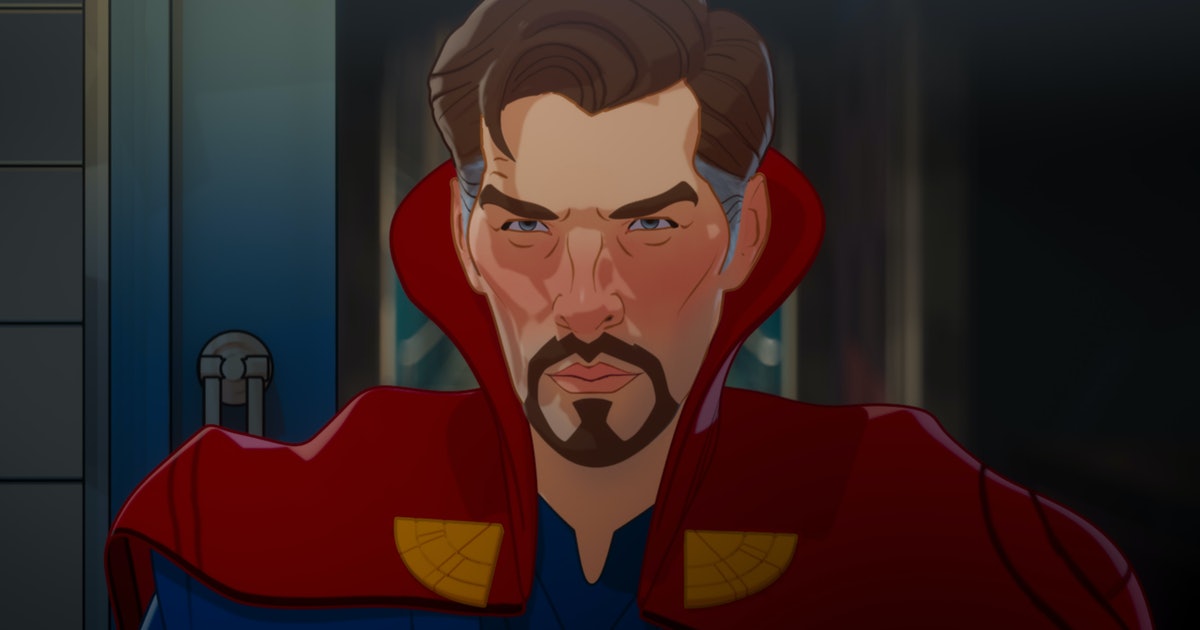Marvel’s What If…? Flips the Script on Fridging
Fridging turns our heroes into villains. Confirmed.


Fridging—killing off or otherwise harming female characters to motivate male characters—is a horrible tradition that comics have used time and time again to give gravitas to their heroes. The most recent example I can think of is when J.J. Abrams and his son, Henry Abrams, killed off Mary Jane Watson in their Spider-Man comic. But that trend is making a reappearance in the world of Marvel’s What If…? and sort of for the better.
Fridging is usually used as motivation for the story’s “hero,” which is frustrating given that a woman has to die in order for that hero to feel the need to do his part, but alas. What What If…? is doing is making fridging turn these characters we looked up to as heroes into their own sort of villain.
**Spoilers for the most recent episode of Marvel’s What If…? lie within.**
I am unapologetic in my dislike of Doctor Stephen Strange. He’s a man who crashed a car because he was texting and driving and then wanted the world to feel bad for him for not being able to be the doctor he trained to be. His arrogance constantly gets in his way, and rarely is he called out for it—that is, until What If…?
In an episode entitled “What If…Doctor Strange Lost His Heart Instead of His Hands?” we see a world where Christine Palmer dies in the car accident instead of Stephen losing his hands. Still, he seeks out answers in the mystic arts, and in one of his timelines, he becomes so obsessed with the idea of bringing Christine back that he will do whatever it takes.
That Stephen? The one who doesn’t care what people tell him and will force his timeline to do what he wants if he has to? That’s a villain. Sure, in one way, Stephen is grieving and he’s using what he has to his advantage, but he lets his grief turn him into something he’s not. While I know there will be comparisons to Wanda Maximoff’s exploration of her own grief in WandaVision, hers is different because she loses control of her power. Stephen Strange? He actively chooses to take on as much power as possible despite even the Ancient One telling him that he cannot change the past.
I didn’t love watching Christine Palmer die over and over again, but I do like that this is now the second episode that shows “heroes” turning to the dark side because the women in their lives die. The way I described it out loud after the episode was that women bottle their issues until it overwhelms them, while men make their problems that or the entire world’s.
That’s extremely true of this episode because Stephen Strange doesn’t realize until it is too late that his actions have consequences—world-ending consequences, and it takes the Watcher taking this universe away for him to realize that he cost billions their existence because he could not accept Christine’s death.
I don’t want fridging to be a thing. I hate the idea that anyone has to die to make someone’s storyline better. But showing that it drives these “heroes” to become villains? That I sort of enjoy. It happened with Doc Ock, it happened with Kraven the Hunter, and more. All these villains lost the love of their lives and turned to extreme measures. In the case of What If…?, Strange goes full Wilson Fisk in Into the Spider-Verse to get Christine back and, like Fisk before him, loses everything.
It takes the world collapsing around him, Christine (who he finally saved) fading away from him as the universe erases itself, for Strange to finally realize that his arrogance has destroyed his life yet again. It took getting what he wanted to realize that, and that is one of the core problems with how Stephen Strange thinks.
This episode did a great job of making me like a version of this character, especially when the Ancient One separated the timelines and gave Stephen Strange an “evil” twin, because the one left behind realized he couldn’t live in the past and went to have some whiskey with Wong. That Strange? Who knew he couldn’t change what happened and just wanted to do what is right for the future? That Strange I love.
So watching as fridging turns men into villains? Still not something I like, but I do like the commentary that some of these “heroes” still have selfish tendencies.
(image: Marvel Entertainment)
Want more stories like this? Become a subscriber and support the site!
—The Mary Sue has a strict comment policy that forbids, but is not limited to, personal insults toward anyone, hate speech, and trolling.—
Have a tip we should know? [email protected]
